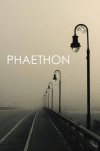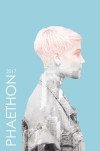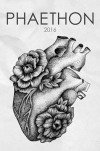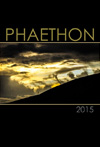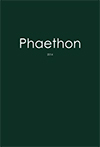About Phaethon, the literary and arts publication of Herkimer College.
The myth of Phaethon is simple. He seeks to know his father. So he asks his mother Clymene, and she tells him his father is none other than Apollo, the god of the sun. Phaethon goes to Apollo and asks for some proof of their relationship, and Apollo says he will grant him one wish. Phaethon wishes to drive Apollo’s chariot that pulls the sun across the sky. The only being that can do this successfully is Apollo himself. Not even Zeus can pull the sun across the sky. Knowing this, Apollo tries to dissuade Phaethon from this task. This does not work, and Phaethon is placed in charge of the chariot and its horses that breathe fire. Doomed from the start, Phaethon loses control of the chariot and nearly burns up the Earth. The Earth cries out to Zeus for help, and Zeus strikes Phaethon dead with a thunderbolt. Phaethon, now a falling star, plunged into the river Eridanos still ablaze. His epitaph reads:
Here Phaethon lies who in the sun-god’s chariot fared.
And though he greatly failed, more greatly he dared.
In the spirit of this figure, we at the Phaethon value bold, confident, daring, courageous, and risky fiction, poetry, and art. Phaethon is not a tragic figure. His actions, that of a mere mortal, for a brief moment of time are equal to an immortal. He did something no other mortal, or immortal for that matter, could ever do. His confidence, courage, and daring are an inspiration to all of us. We too, if we risk our very lives, can be gods.
So we want pieces that challenge, inspire, stump, and move us. We crave new expression. New ideas. New connections. We do not value art that tests the boundaries of expression. We value art that obliterates them.
Faculty Advisors:
Andrew Devitt, Assistant Professor, English
Blake Pitcher, Assistant Professor, Digital Graphics
Matthew Powers, Instructor, English
We welcome feedback at litmag@herkimer.edu





